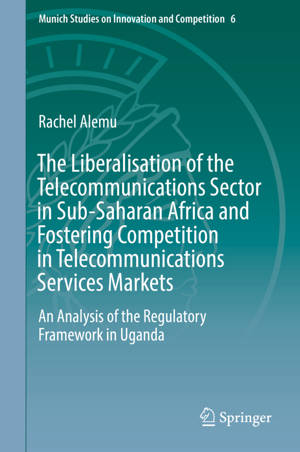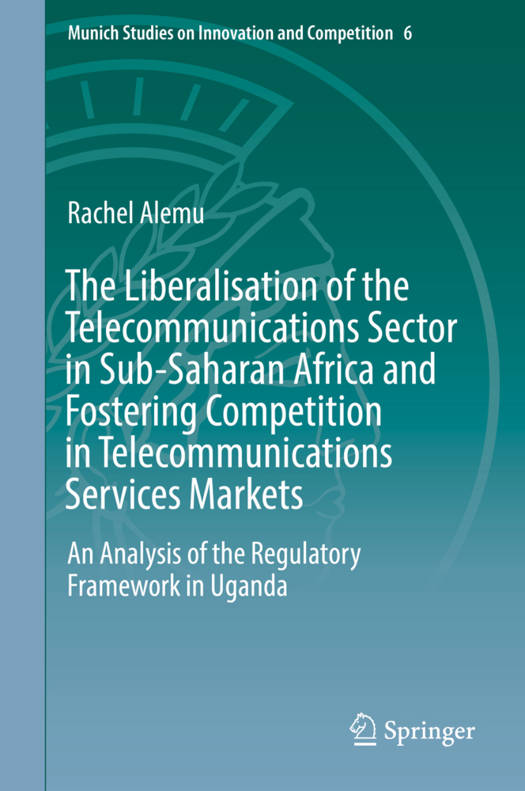
- Retrait gratuit dans votre magasin Club
- 7.000.000 titres dans notre catalogue
- Payer en toute sécurité
- Toujours un magasin près de chez vous
- Retrait gratuit dans votre magasin Club
- 7.000.0000 titres dans notre catalogue
- Payer en toute sécurité
- Toujours un magasin près de chez vous
The Liberalisation of the Telecommunications Sector in Sub-Saharan Africa and Fostering Competition in Telecommunications Services Markets
An Analysis of the Regulatory Framework in Uganda
Rachel Alemu
105,45 €
+ 210 points
Format
Description
This study investigates whether the existing regulatory framework governing the telecommunications sector in countries in Sub-Saharan Africa effectively deals with emerging competition-related concerns in the liberalised sector. Using Uganda as a case study, it analyses the relevant provisions of the law governing competition in the telecommunications sector, and presents three key findings: Firstly, while there is comprehensive legislation on interconnection and spectrum management, inefficient enforcement of the legislation has perpetuated concerns surrounding spectrum scarcity and interconnection. Secondly, the legislative framework governing anti-competitive behaviour, though in line with the established principles of competition law, is not sufficient. Specifically, the framework is not equipped to govern the conduct of multinational telecommunications groups that have a strong presence in the telecommunications sector. Major factors hampering efficient competition regulation include Uganda's sole reliance on sector-specific competition rules, restricted available remedies, and a regulator with limited experience of enforcing competition legislation. The weaknesses in the framework strongly suggest the need to adopt an economy-wide competition law. Lastly, wireless technology is the main means through which the population in Uganda accesses telecommunications services. Greater emphasis should be placed on regulating conduct in the wireless communications markets.
Spécifications
Parties prenantes
- Auteur(s) :
- Editeur:
Contenu
- Nombre de pages :
- 389
- Langue:
- Anglais
- Collection :
- Tome:
- n° 6
Caractéristiques
- EAN:
- 9783662553176
- Date de parution :
- 09-02-18
- Format:
- Livre relié
- Format numérique:
- Genaaid
- Dimensions :
- 156 mm x 234 mm
- Poids :
- 752 g

Les avis
Nous publions uniquement les avis qui respectent les conditions requises. Consultez nos conditions pour les avis.






